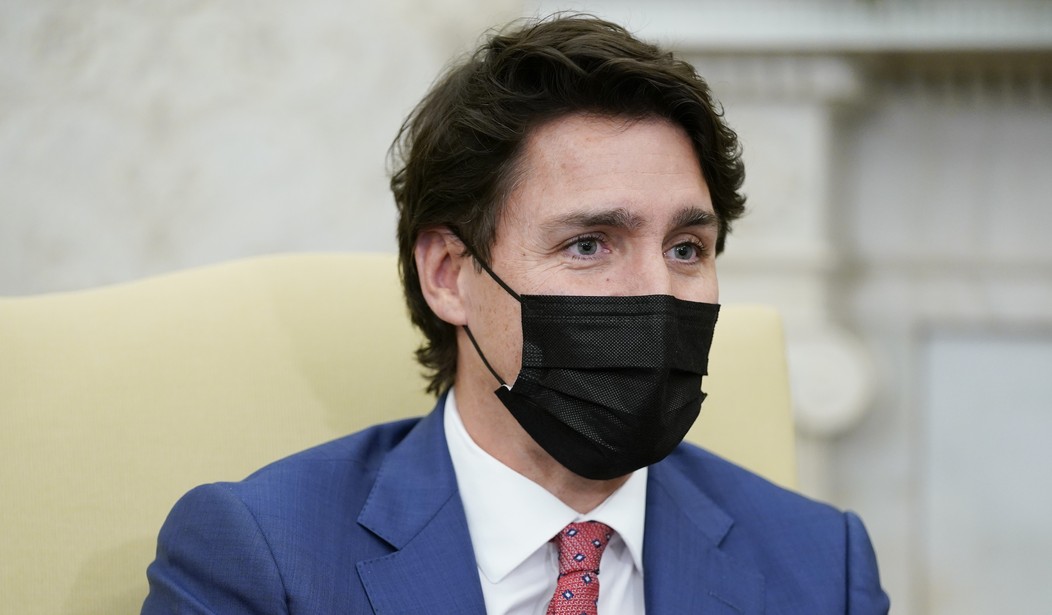The Truckers Convoy that parked for three exuberant weeks in Ottawa protesting the draconian mandate policies of the government has been cleared away and nothing much had changed at the federal level. Most of the provinces have relaxed their COVID-19 restrictions, but the federal authorities have not budged an inch. The mandatory regime remains in place, and travel is still restricted for the unvaccinated, in flagrant violation of Section 6 of the Charter of Rights and Freedoms.
The brutal crackdown against the Trucker Convoy confirms that opposition to government edicts and decrees will not be tolerated, no matter how peaceful, spontaneous, legitimate, or honorably inspired. The national debt keeps mounting at the alarming rate of $391.5 million every day and now exceeds $1.1 trillion for a country of only 38 million people. Parliamentary Bills, such as C-11, C-4, and others restricting traditional freedoms are likely to be passed by a craven parliament jealous of its privileges. Carbon taxes remain on the books, the energy industry continues moribund, gas prices are surging to over $2 a liter (over $8 a gallon), and inflation is skyrocketing. Trading platforms are increasingly unreliable, and the Consumer Price Index is in shambles.
Meanwhile, transboundary rights claims for indigenous peoples are under discussion, involving, as the Fraser Institute points out, the potential for indigenous groups located outside the country to hold constitutionally protected Aboriginal rights inside the country. As a remnant of dissidents believes, this is not how a democratic nation responsible to its citizens should operate; indeed, it entails a subtle expansion of legislative jurisdiction and cadastral territory under the pretext of historical reparations. The concept “democratic nation” is, of course, both nominal and moot.
The country’s dear leader, Jun Ti-au, the son of the lamented Pie Ell-au, is naturally subject to sporadic defamation. His public denunciation at the EU parliament by six MEPs and an Irish senator is of no significance to the state-supported media and the citizen body in general. His acolytes insist that he is universally respected and speaks, as the country’s Public Broadcaster asserts, to “packed public galleries.” The photo of the latter event, showing assembly members having left in droves, was from the official perspective obviously photoshopped by his enemies and unworthy of mention.
While falling considerably short of his father Pie’s international stature, Jun commands the allegiance of the majority of citizens and retains what amounts to dictatorial powers, envisioning, in the words of Northumbria law professor David McGrogan, an “ever-increasing scope and scale for governmental authority, and the opportunities to buttress his own legitimacy that would follow from it.” Of course, should he falter, Jun is ably backed by his Deputy PM and Finance Minister, Kry Fri-an, she of freezing-bank-accounts fame, who may one day wield the scepter of authority.
Admittedly, we still have elections, and Jun does not receive 99.99% of the vote as his colleagues and mentors in other countries regularly do, but a recumbent and poorly educated public still votes 70% Left, and the State under socialist principles still continues to amass ever more muscular power and mandatory collagen. As presently constituted, the country is a de facto dictatorship—“unacceptable views” is the watchword of governance—and Charter oversight a thing of the past.
Clearly, Jun does not need a loyal militia or a policy of manufactured famine to consolidate his power. As noted, a compliant and supine public that habitually votes Left and a parliamentary system that allows for minority governments to form squalid and venal coalitions between parties ensure his near-perpetual reign. The regime of the people’s glorious leader Jun Ti-au is now solidly entrenched and the citizens of the Democratic People’s Republic of Kaneda enthusiastically attest to his good health and ardently approve his political longevity.










Join the conversation as a VIP Member